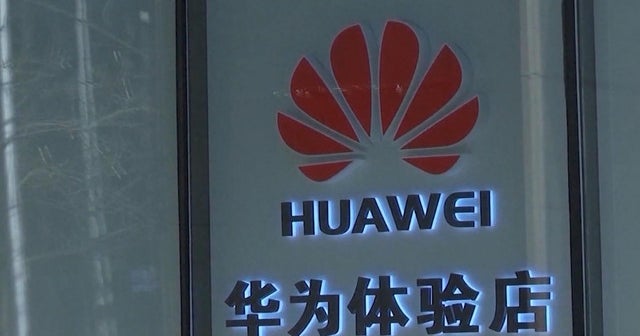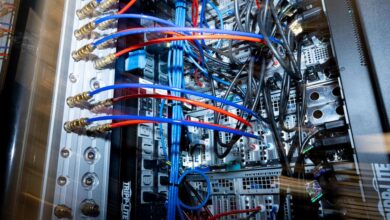Canadian court to look at evidence to extradite Chinese Huawei executive to the U.S.

A Canadian court is set to examine the evidence for extraditing Chinese Huawei executive Meng Wenzhou to the United States. The case involves allegations of bank fraud and has significant implications for international relations, technology, and big money.
Meng Wenzhou, the daughter of Huawei’s founder, was arrested in Canada in December 2018 at the request of the United States. She faces charges of bank fraud related to violations of U.S. sanctions against Iran. The U.S. alleges that Meng misled banks about Huawei’s business dealings in Iran, putting them at risk of violating sanctions.
The extradition hearing, which begins on Monday, will determine whether Meng should be sent to the U.S. to face trial. The case has sparked tensions between China, Canada, and the U.S., with China accusing Canada of detaining Meng as a political move to please the U.S.
The outcome of the hearing could have far-reaching consequences for Huawei, one of the world’s largest telecommunications companies. The U.S. has been pressuring its allies to ban Huawei from their 5G networks, citing national security concerns. Meng’s extradition could further strain relations between China and the West.
The case also highlights the intersection of law, technology, and geopolitics. Huawei is a key player in the global race for 5G technology, and Meng’s arrest has become a flashpoint in the broader U.S.-China rivalry. The outcome of the extradition hearing will be closely watched by governments, businesses, and tech industry observers around the world.
Jonathan Vigliotti will be reporting on the case, providing updates on the proceedings and analysis of the implications for the tech industry and international politics. Stay tuned for more updates on this developing story. Jonathan Vigliotti reports on the latest developments in the case of Meng Wenzhou, a top Chinese executive of Huawei who is facing extradition to the United States on bank fraud charges. The Canadian court will begin hearing evidence on Monday, marking a crucial moment in a case that involves big money, high technology, and international politics.
Meng Wenzhou, the chief financial officer of Huawei, was arrested in Canada in December 2018 at the request of the United States. She is accused of misleading banks about Huawei’s business dealings in Iran, which allegedly violates U.S. sanctions against the country. The U.S. is seeking Meng’s extradition to face trial on charges of bank fraud and conspiracy.
The case has strained relations between China and the U.S., as well as Canada, with Chinese officials calling Meng’s arrest a political move aimed at undermining Huawei, one of China’s leading technology companies. The U.S. has also raised concerns about Huawei’s ties to the Chinese government and the potential security risks posed by the company’s technology.
Meng’s extradition hearing is expected to last several weeks, with both sides presenting evidence and arguments to the court. If the judge rules in favor of extradition, Meng could be sent to the U.S. to stand trial. However, the process could be complicated by political considerations and diplomatic tensions between the countries involved.
Jonathan Vigliotti will be following the case closely and providing updates on the proceedings as they unfold. Stay tuned for the latest developments in this high-profile extradition case that has implications for the future of Huawei, the U.S.-China relationship, and international trade. The concept of artificial intelligence (AI) has been around for decades, but in recent years, it has gained significant traction and has become a hot topic in various industries. AI refers to the ability of machines to perform tasks that typically require human intelligence, such as learning, reasoning, problem-solving, perception, and language understanding.
One of the key drivers of the increasing interest in AI is the exponential growth of data. With the proliferation of digital devices and the internet, massive amounts of data are being generated every day. AI algorithms can analyze and make sense of this data at a speed and scale that is impossible for humans to achieve.
AI is being used in a wide range of applications, from virtual assistants like Siri and Alexa to self-driving cars, medical diagnosis, financial trading, and even video games. In healthcare, AI is being used to analyze medical images, predict patient outcomes, and assist in drug discovery. In finance, AI is being used to detect fraud, make investment decisions, and optimize trading strategies.
One of the most exciting developments in AI is deep learning, a subset of machine learning that involves training artificial neural networks on large amounts of data. Deep learning has led to significant advances in areas such as computer vision, natural language processing, and speech recognition. For example, deep learning algorithms have achieved human-level performance in image recognition tasks and have been used to develop sophisticated language models like OpenAI’s GPT-3.
Despite the many benefits of AI, there are also concerns about its potential impact on society. Some experts worry about the loss of jobs due to automation, the potential for bias in AI systems, and the risk of AI being used for malicious purposes. As AI technologies continue to advance, it will be important for policymakers, researchers, and industry leaders to address these challenges and ensure that AI is developed and deployed responsibly.
In conclusion, AI has the potential to revolutionize the way we live and work, with applications in almost every industry. While there are challenges and risks associated with its development, the benefits of AI are undeniable. As researchers continue to push the boundaries of what is possible with AI, we can expect to see even more exciting developments in the years to come. The world of technology is constantly evolving, with new advancements and innovations being made every day. One of the most exciting developments in recent years is the rise of artificial intelligence (AI). AI is a branch of computer science that aims to create intelligent machines that can think, learn, and adapt like humans.
AI has the potential to revolutionize industries across the board, from healthcare to finance to transportation. One area where AI is already making a significant impact is in the field of robotics. Robots powered by AI are being used in a variety of applications, from manufacturing to healthcare to agriculture.
In manufacturing, AI-powered robots are being used to automate repetitive tasks and improve efficiency. These robots can work around the clock without getting tired or making mistakes, leading to increased productivity and cost savings for companies. In healthcare, robots are being used to assist with surgeries, deliver medications, and provide support to patients. These robots are also being used in eldercare facilities to help with daily tasks and provide companionship to residents.
In agriculture, AI-powered robots are being used to monitor crops, manage irrigation systems, and harvest produce. These robots can significantly reduce the need for manual labor and help farmers increase their yields and profits. In addition to robots, AI is also being used to develop autonomous vehicles that can navigate roads and make decisions on their own. These vehicles have the potential to revolutionize transportation and make our roads safer for everyone.
While the potential benefits of AI are vast, there are also concerns about the ethical implications of this technology. Some worry that AI-powered robots could replace human workers, leading to job losses and economic instability. Others are concerned about the potential for AI to be used for malicious purposes, such as surveillance or warfare.
Despite these concerns, the future of AI looks bright. As researchers continue to make advancements in this field, we can expect to see even more incredible applications of AI in the years to come. From autonomous robots to self-driving cars, AI has the potential to transform our world in ways we never thought possible. It’s an exciting time to be alive, and the possibilities are truly endless. The world of technology is constantly evolving, with new innovations and advancements being made every day. One area that has seen significant growth in recent years is artificial intelligence (AI). AI refers to the development of computer systems that can perform tasks that typically require human intelligence, such as visual perception, speech recognition, decision-making, and language translation.
One of the most exciting developments in AI is the use of machine learning algorithms. Machine learning is a subset of AI that involves building algorithms that can learn from and make predictions or decisions based on data. This technology has been used in a wide range of applications, from self-driving cars to personalized recommendations on streaming services.
One of the key benefits of machine learning is its ability to analyze and interpret large amounts of data quickly and accurately. This has enabled businesses to make more informed decisions, improve efficiency, and enhance customer experiences. For example, e-commerce companies use machine learning algorithms to analyze customer behavior and make personalized product recommendations, while healthcare providers use it to analyze patient data and make more accurate diagnoses.
Another area where AI is making a significant impact is in the field of robotics. Advances in AI have enabled robots to perform increasingly complex tasks, such as autonomous navigation, object recognition, and manipulation. This has led to the development of robots that can assist with a wide range of tasks, from household chores to manufacturing processes.
AI is also being used in the field of healthcare to improve patient outcomes and reduce costs. For example, AI-powered diagnostic tools can analyze medical images and detect signs of disease more accurately than human doctors. AI is also being used to develop personalized treatment plans based on individual patient data, leading to more effective and targeted therapies.
While the potential benefits of AI are vast, there are also concerns about its impact on society. One of the biggest concerns is the potential for AI to replace human jobs, leading to widespread unemployment. There are also ethical concerns surrounding the use of AI, such as bias in algorithms and the potential for misuse of personal data.
Despite these challenges, the future of AI looks promising. As technology continues to advance, AI is likely to play an increasingly important role in our lives, from improving healthcare outcomes to revolutionizing the way we work and live. It is important for policymakers, businesses, and individuals to work together to ensure that AI is developed and used in a responsible and ethical manner, to maximize its benefits while minimizing its risks.





